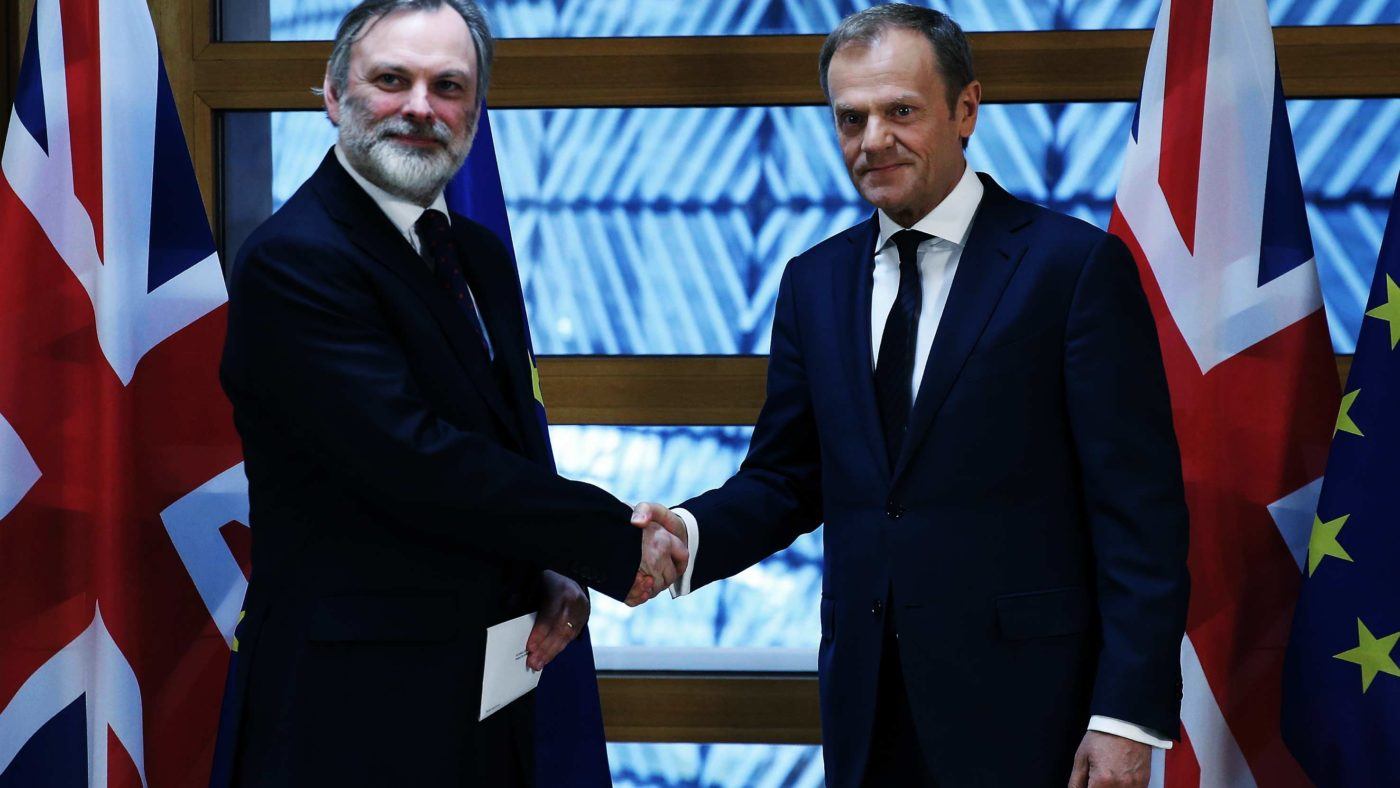A survey by the Chartered Institute of Procurement & Supply, reports that a major concern among supply chain managers is Britain’s supposedly weak position going into the Brexit negotiations. This, they believe, is the main “challenge” facing our negotiating team.
Given the pro-EU media narrative which has tried to portray these negotiations as a one-sided affair, this is unsurprising. Many Remainers appear to think that the EU will either see fit to “give” us a good deal, or impose a bad deal upon us. The EU is presented as this immovable object, immune to the effects of Brexit negotiations; while the UK is portrayed as being at the mercy of Brussels.
The narrative is, of course, false. The EU has done a good job creating this impression of being considerably less bothered about a deal than Britain. But it is just an illusion.
Take, for instance, London’s financial services industry, which is reliant – or so we are led to believe – on the EU. In reality, any attempt to weaken the City will not help Frankfurt, Paris, or Dublin. None of these cities has the infrastructure to replace or challenge London.
If the EU insists on a Brexit deal which hurts the City, the main beneficiaries would be London’s worldwide rivals – New York, Singapore, and Hong Kong. This would be bad for all of Europe. The relationship between the City of London and the EU is complex, with both sides relying to some extent on each other. It would not be in the EU’s interests to imperil this.
A similar relationship exists for trade between the UK and the EU. Yes, over 40 per cent of the UK’s exports go to the EU, compared with just 17 per cent of the EU’s exports coming to the UK. But both figures are large – we are each other’s single largest trading partner – and both sides will be equally keen to avoid significant disruption to the flow of trade. Everyone, not only the UK, will want a deal.
When Prime Minister Theresa May invoked Article 50 at the end of March, she was criticised by Remainers for reminding the EU of what no deal could mean for security and defence. Britain is a military powerhouse, and is one of the few Nato members which consistently reaches its commitment to spend 2 per cent of GDP on defence.
With a resurgent Russia, an increasingly volatile Turkey, and a US President whose commitment to defending “freeloading” Nato members is questionable, EU Member States are more reliant than ever on British military support. Maintaining UK-EU defence co-operation is a key reason for the EU to avoid no deal, and a major negotiating strength for Britain. The same goes for security co-operation. In an increasingly unstable world, Europe will benefit from continuing to work with Britain’s first-class intelligence services.
Ultimately, however, it comes down to the money. The “Brexit bill” saga is a sign of the EU’s weakness, not its strength, in these negotiations. Europe are repeatedly insisting on such a large fee because it is one of the few things which unites them – none of the remaining 27 Member States wants to foot the bill for the massive black hole Brexit will leave in the EU’s budget.
Ironically, they cannot go too far in insisting on the fee because if Britain just walks away, they’ll receive nothing. For this reason alone, Britons should be confident the Government will negotiate the bill down to a more acceptable figure than the absurd €100 billion currently being demanded.
The negotiations are a lot more balanced than the EU would like us to believe. Europe will be keen to avoid losing our trade, our money, and our co-operation on defence and security. They also cannot afford to launch an assault on the City of London. When we go into the negotiations to get Britain out after the General Election, we should be assertive and confident – our position is a lot stronger than we might think.


